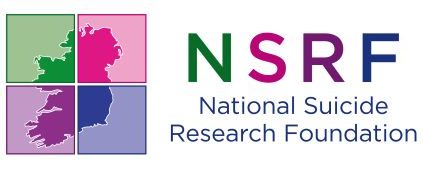What are Cookies?
Cookies are small harmless files that are automatically dropped on your computer when you visit a website. Cookies are bits of text that are locally stored and can easily be viewed and deleted.
The National Suicide Research Foundation (NSRF) website uses cookies. Cookies can be useful as they can be used to allow a website to work more efficiently, allow a website to recognise a user’s device, analyse how people use a website and track your preferences.
Cookies do not contain confidential information such as your home address, telephone number or credit card details. We do not exchange cookies with any third party websites.
Unless you have adjusted your browser setting so that it will refuse cookies, our system will issue cookies and download them onto your device when you log on to our site.
NSRF cookies
When you enter the NSRF website, a message will appear asking if you wish to consent to the use of cookies. If you click the “Accept and Continue” button, the NSRF website will use a cookie which records your consent. If you do not wish cookies to be placed on your computer, leave the message and continue browsing. For more information on how to manage cookies, including how to block cookies entirely, please see the Aboutcookies.org page.
The different types of cookies the NSRF’s website uses are listed below:
Session cookies:
These are temporary cookies used to preserve the state of your activity between pages, such as passing your choices in a form to the next page. These cookies are transient and are deleted automatically when you close your browser. They are not visible to anything except your browser and are not passed on anywhere else.
Functionality cookies:
These cookies are used to ensure our website can function correctly when you browse our site, such as collecting a language code and setting display language so we can present you the correct language.
| Name of Cookies | Default expiration time | Cookie Description |
| lang | session | Stores language preferences |
| _twitter_sess | session | Third party Twitter cookie: Allows website visitors to access the NSRF twitter page without having to sign into twitter |
Performance cookies:
| Name of Cookies | Default expiration time | Cookie Description |
| cto | 2 years | Third party Twitter cookie: This cookie allows the sharing capability to social media |
| guest_id | 2 years | Third party Twitter cookie: This cookie allows the sharing capability to social media |
| personalization_id | 2 years | Third party Twitter cookie: This cookie allows the sharing capability to social media |
| eu_cn | 1 year | Third party Twitter cookie: This cookie allows the sharing capability to social media |
| tfw_exp | 14 days | Third party Twitter cookie: This cookie allows the sharing capability to social media |
Google Analytics Cookies:
These cookies allow us to recognise different users as a user navigates from page to page on our website. These cookies will remember the user’s previous interactions with the website.
| Name of Cookies | Default expiration time | Cookie Description |
| _ga | 2 years | Used to distinguish users |
| _gid | 24 hours | Used to distinguish users and stores a value for each page visited |
| _gat | 1 minute | Used to throttle a request rate |
Targeting/Advertising cookies:
| Name of Cookies | Default expiration time | Cookie Description |
| 1P_Jar | 7 days | Google advertising cookie used for user tracking and ad targeting purposes |
How to disable cookies
The NSRF assumes that you consent to these cookies being placed on your computer/device by clicking on the “Accept and Continue” button on the message that appears when you first visit our website, unless you had previously selected to disable them. You can disable these cookies in your web browser with no loss of functionality. This can be done in your browser’s Settings menu — use the help function in your browser or on your browser-maker’s web site for more information.

